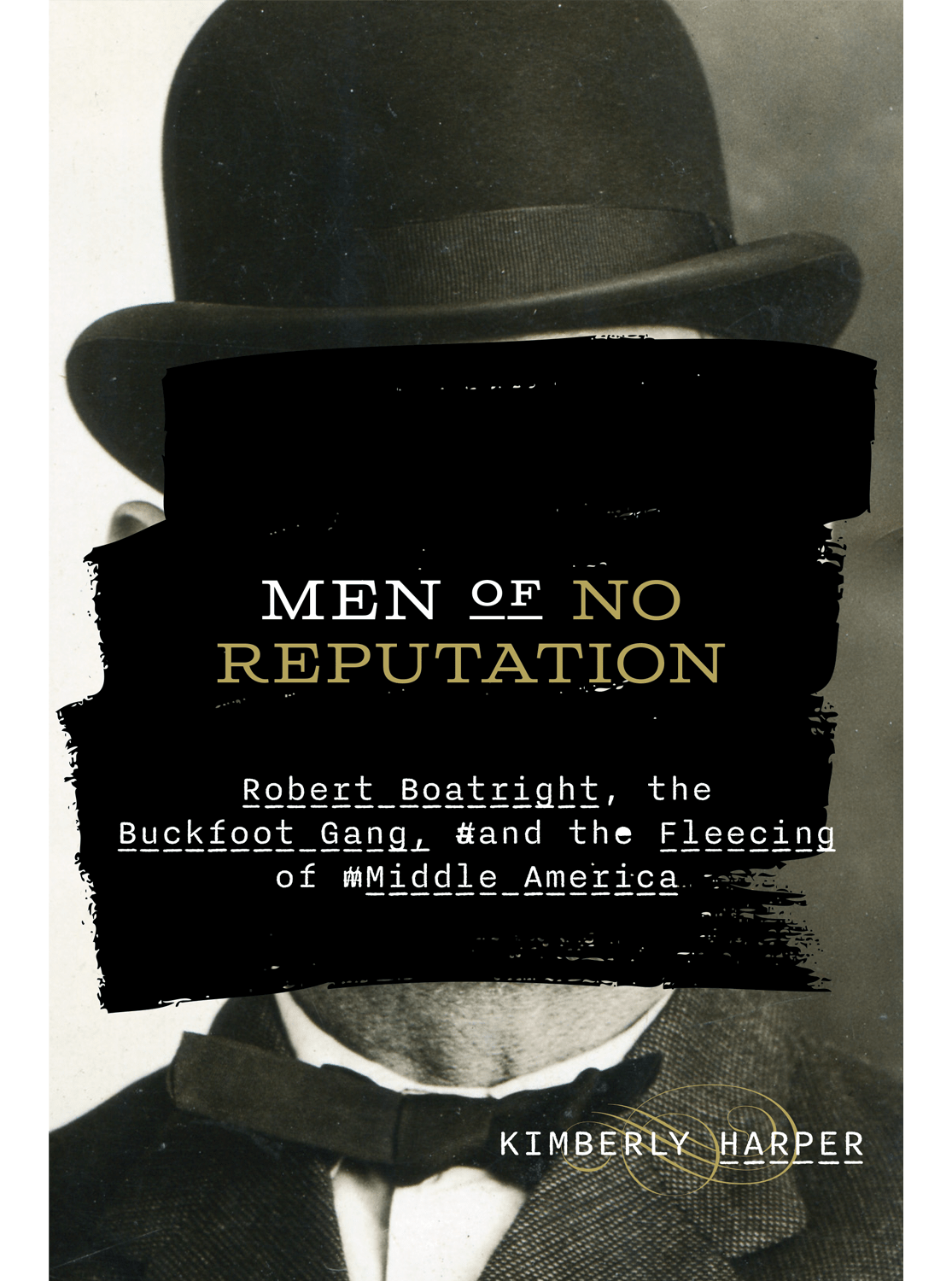Erik Wright has reviewed Men of No Reputation: Robert Boatright, the Buckfoot Gang, and the Fleecing of Middle America in the Tombstone Epitaph.
“Historian Kimberly Harper, a noted voice on Southern violence and post-Reconstruction issues, brings (back) to life one of the greatest confidence men you’ve never heard of: Robert Boatright. As the head of the Midwest’s Buckfoot Gang, Boatright was every bit as dangerous and influential as Western conmen like Soapy Smith and Big Ed Burns. Through Harper’s meticulous research, Boatright’s story is again brought to national attention and exposes the seedy underbelly of Boatright’s criminal influence on the otherwise idyllic Midwest at the dawn of the 20th century. Men of No Reputation is an insightful book about menacing criminals and offers a spotlight into the world of men whose lives led them into the shadows as well as those who sought to catch them.”
—Erik Wright, Tombstone Epitaph, June 2024
Swindler. Murderer. Scoundrel. Robert Boatright was one of Middle America’s greatest confidence men. Although little remembered today, his story provides a rare glimpse into America’s criminal past. Working in concert with a local bank and an influential Democratic boss, “this dean of modern confidence men” and his colorful confederacy of con men known as the Buckfoot Gang seemed untouchable. A series of missteps, however, led to a string of court cases across the country that brought Boatright’s own criminal enterprise to an end. And yet, the con continued: Boatright’s successor, John C. Mabray, and his cronies, many of whom had been in the Buckfoot Gang, preyed upon victims across North America in one of the largest midwestern criminal syndicates in history before they were brought to heel.
Like the works of Sinclair Lewis, Boatright’s story exposes a rift in the wholesome midwestern stereotype and furthers our understanding of nineteenth- and twentieth-century American society.
Kimberly Harper earned a master’s degree in history from the University of Arkansas. She received the Missouri Humanities Council’s Distinguished Achievement in Literature (Non-Fiction) Award for her book White Man’s Heaven: The Lynching and Expulsion of Blacks in the Southern Ozarks, 1894–1909.

